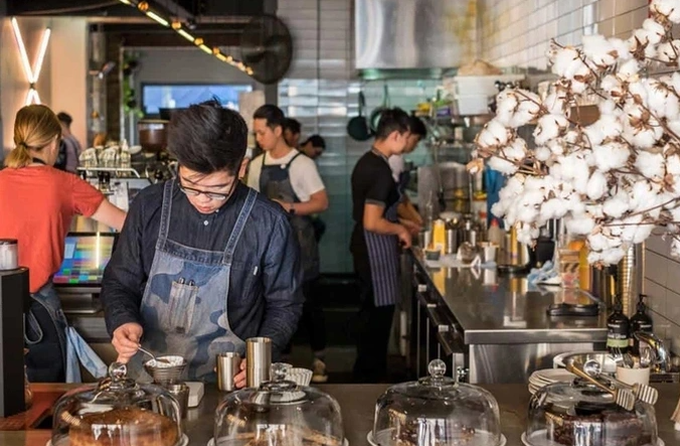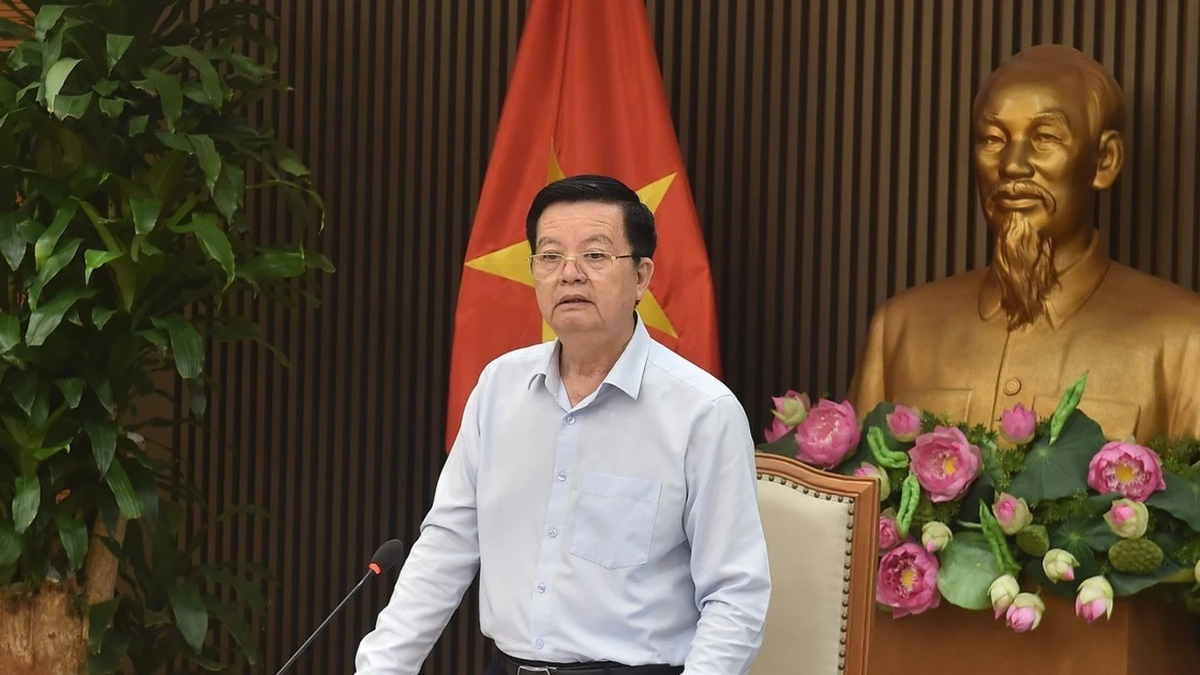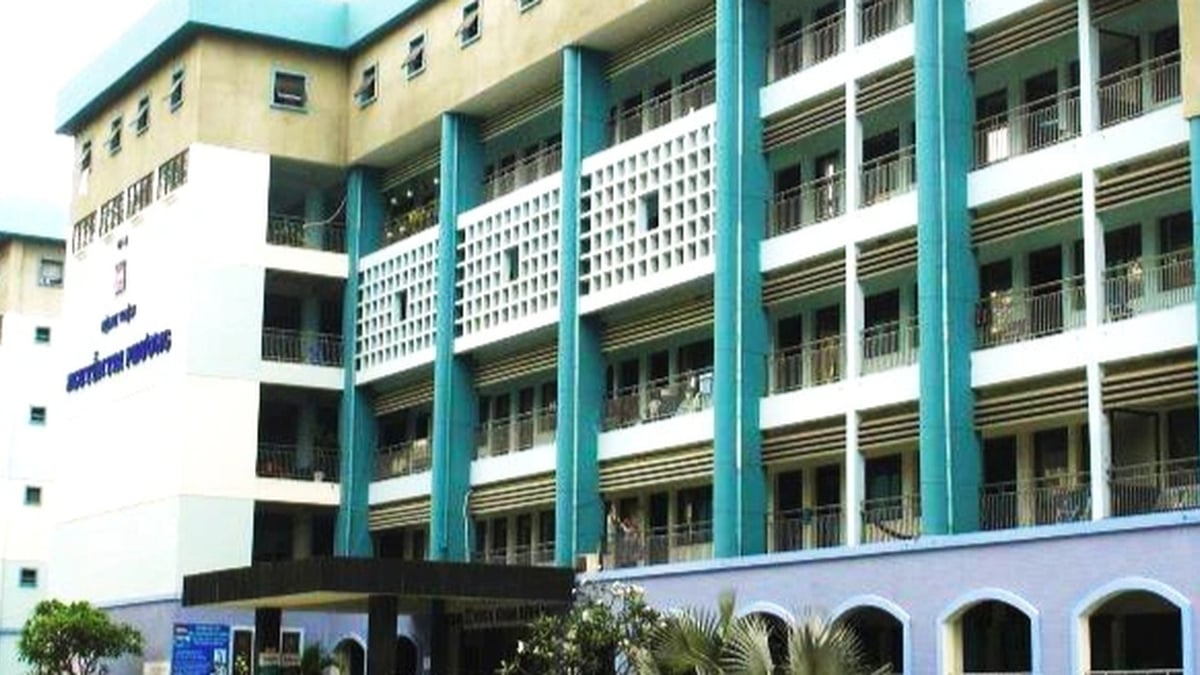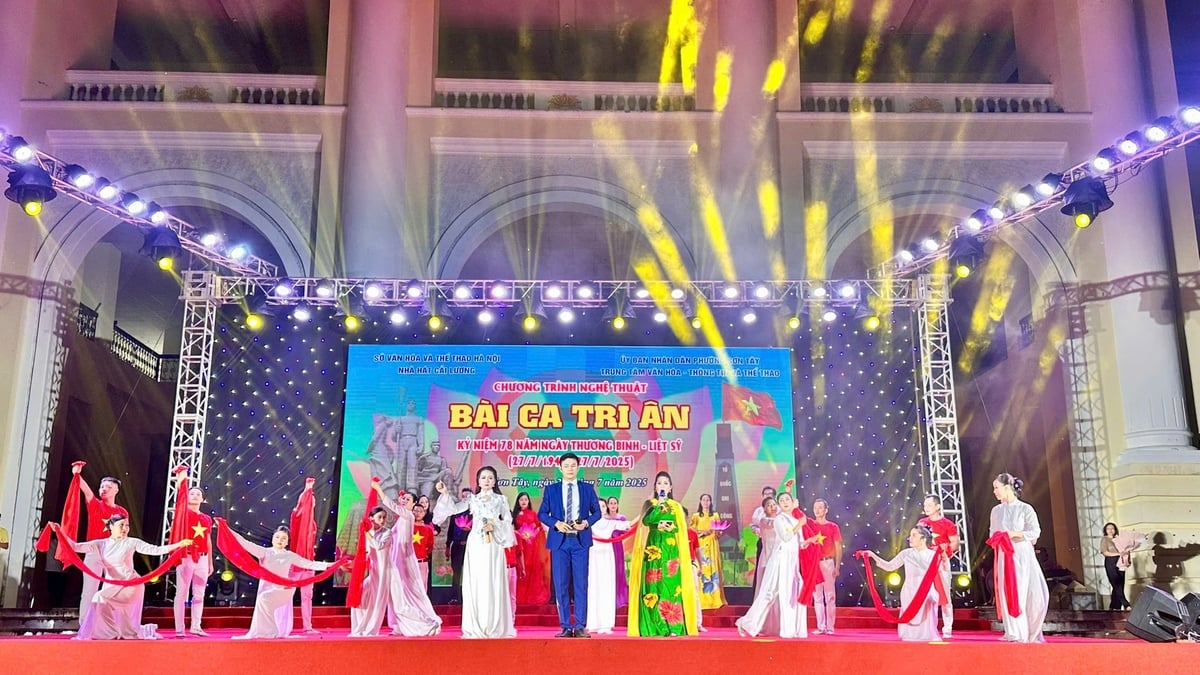Short and long term benefits
After completing his internship in Japan, Mr. Dinh Ba Khang (from Hanoi ) returned to Vietnam to complete his student visa application and then returned to the land of the rising sun. After holding the new visa, Mr. Khang felt regretful for not going as a student from the beginning.
"International students will be free to choose their jobs and receive 100% salary like Japanese people," Khang said.

International students in Japan can earn the same income as Vietnamese interns, while they only need to work 4 hours/day (Illustration photo).
According to Khang, an intern working 8 hours/day can earn 10-12 Man/month (equivalent to 16-19 million VND), while an international student only needs to work 4 hours/day to earn 13-15 Man/month (equivalent to 21-24 million VND).
"Compared to normal labor visas, a student visa in Japan is beneficial to workers in many ways," said Mr. Khang.
For the self-funded study abroad program, applicants only need to study Japanese for 5 months instead of 6 months to nearly 2 years like normal labor. As for scholarship study abroad, applicants must meet higher language requirements.
"Currently, the two most prominent scholarships for studying abroad are the newspaper scholarship and the sukiya scholarship. Those who win these two scholarships will not have to worry about the cost of going to Japan and can also earn more money than trainees who go as regular workers," Mr. Khang shared.

International students can work 28 hours/week, with income ranging from 16-25 million VND/month (Illustration photo).
Currently, Mr. Khang is also a consultant at a Japanese study abroad center. Mr. Khang shared that many people have switched from regular labor to studying abroad because they see many outstanding strengths.
Mr. Pham Hung Vuong (20 years old, from Hanoi) has been studying in Japan since 2019. Right after graduating from high school, Vuong did not choose to continue studying in the country but instead started preparing to apply to go to Japan.
"Because I have dreamed of studying and working in Japan for a long time, I prepared in advance. After doing some research, I know that studying abroad is still more beneficial in both the short and long term, even though the initial investment is higher," Vuong said.
It is known that the family invested about 240 million VND for Vuong to study economics in Japan. When he first arrived in Japan, Vuong got a part-time job at a bakery. Now, the young man has switched to working at a restaurant.
On average, Vuong earns 10-12 Man per month for 4 hours of work per day. If he works at night, his income will increase to 14-15 Man per month (about 24-25 million VND).
"This amount is more than the trainee's, but it is enough to cover expenses and occasionally send home. However, it has more advantages because after finishing school, you can work for a Japanese company and can sponsor your wife and children to come. The whole family will enjoy the same benefits," Vuong said.
Can't avoid doing "underground" work
Mr. Dinh Ba Khang said that there are many cases of workers choosing to go abroad on a student visa to work "illegally" or to work more than the prescribed number of hours, doing unauthorized jobs.

Receiving 100% salary like Japanese people but limited working hours, many international students choose to work "illegally" (Illustration: VH).
"In such cases, students usually skip school just to go to work. But if they miss too many classes, the school will penalize their performance," said Mr. Khang.
The young man added that, in reality, the Japanese do not comply 100%. "There are large restaurants or hotels that still accept Vietnamese workers to work part-time. While the law is that those who come under the regular labor program are not allowed to do any other job besides the one they are doing," Mr. Khang explained.
In his opinion, he does not oppose international students working illegally. Because he himself believes that Vietnamese workers also contribute to the Japanese economy. "If they do not do anything illegal such as doing business without permission or trading in illegal substances, it is acceptable," Mr. Khang confided.
However, according to Mr. Hung Vuong, international students should not violate the part-time work regulations they have committed to with Japan.
"If you get caught doing it illegally, your visa will be greatly affected, and you may even be deported from Japan. Not only that, this can negatively affect the image of Vietnamese students studying in Japan in the future," said Mr. Vuong.
It is known that the young man has only 1 year left to graduate. Vuong plans to return to Vietnam to start a business or come back and apply for a visa change. This type of visa will give him the opportunity to stay and work and enjoy more benefits like a Japanese person. Therefore, the young man always complies with the regulations, because he knows that there will be many opportunities to work and earn money in Japan in the future.
Newspaper Delivery Scholarship or Newspaper Scholarship is a scholarship program by major Japanese newspapers such as Asahi, Mainichi, Sankei, Yomiuri, Isshin. These organizations are willing to sponsor international students, through recruiting young workers from neighboring countries to undertake manual work, specifically newspaper delivery.
The Sukiya Scholarship is a scholarship for international students who want to have a part-time job as soon as they arrive in Japan. In addition to the part-time salary, each month, international students also receive a scholarship.
Source link























![[Photo] National Assembly Chairman attends the seminar "Building and operating an international financial center and recommendations for Vietnam"](https://vphoto.vietnam.vn/thumb/1200x675/vietnam/resource/IMAGE/2025/7/28/76393436936e457db31ec84433289f72)










































































Comment (0)